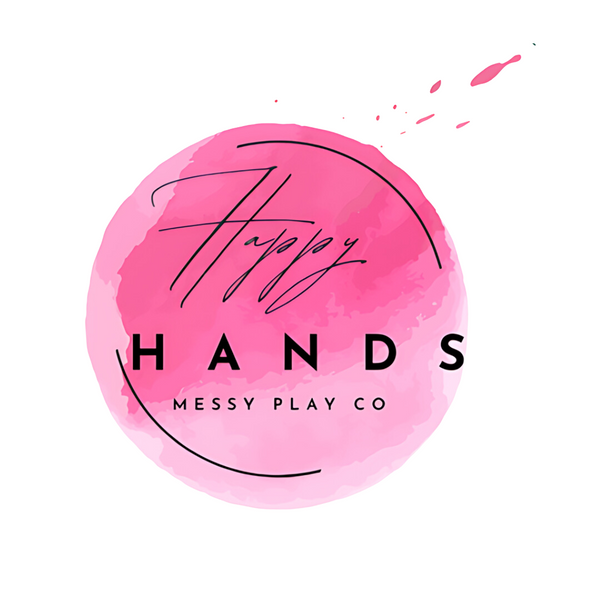
Nurturing Emotional Intelligence: A Messy, Fun-Filled Guide for Parents of 2-8 Year Olds
Share
If you want to raise emotionally intelligent kids, you should try this instead of time-outs!
Hey there, awesome parents and caregivers! Are you ready to embark on a colourful, sometimes messy, but always rewarding journey into the world of emotional intelligence? Grab your paintbrushes and put on your play clothes, because we're about to dive deep into the wonderful world of feelings!
What's the buzz about emotional intelligence anyway?
Emotional intelligence isn't just a fancy term psychologists throw around – it's a superpower that can help your little ones navigate life's ups and downs with grace and resilience. It's all about understanding and managing emotions, both their own and others'. And guess what? The foundations for this incredible skill start developing as early as age 2!
Emotion Coaching: Your New Parenting Superpower
Remember those times when you've told your child to "calm down" or "stop crying"? We've all been there! But what if we told you there's a more effective (and fun) way to handle those big emotions? Enter emotion coaching! This style of parenting and 'behaviour management' has been something I have been working on implementing in my house for the last 6 months. I have found that my own emotions and ability to remain calm have improved, DRAMATICALLY.
Emotion coaching is like being your child's personal feelings detective. Instead of dismissing or punishing emotions, you acknowledge them, help name them, and guide your child through understanding and managing them. It's like giving your child a emotional toolbox they can use for life! It's important to know that this tool requires an understanding that behaviour is simply a communication tool, look beyond the outward expression and try to understand why your little one is feeling this way.
Validating Feelings: The Magic Words
"I see you're feeling angry because your tower fell down. It's okay to feel frustrated when things don't go as planned."
Sounds simple, right? But these words are pure magic! By validating your child's feelings, you're showing them that all emotions are acceptable (even if all behaviours aren't). This builds trust and helps your child feel understood and supported.
Now, I'm not saying that you should not teach your little ones that it's not okay to hit. It's important to hold your boundaries whilst using this tool; " I can see by your bodies actions that your feeling frustrated, it's okay to feel frustrated but it's not okay to hurt me. I would feel frustrated if my brother took my toy too. How about we go and find something else for your brother to play with? It's okay if you need a cuddle first to help your body calm down'.
Co-regulation: The Secret Ingredient
Here's a little secret: children aren't mini-adults. Their brains are still developing, and they need our help to manage big emotions. That's where co-regulation comes in!
Co-regulation is like emotional tag-team wrestling. When your child is overwhelmed, you step in as their emotional rock. You use your calm presence, soothing voice, and maybe even a big bear hug to help them regain balance. And here's the kicker: this process continues well into adulthood. In fact, our brains aren't fully developed until around age 25!
Messy Play: Where Emotions and Creativity Collide
At Happy Hands Messy Play Co, I believe that the best learning happens when kids are having fun. And what's more fun than getting a little messy? Here are some emotion-boosting messy play ideas:
1. Emotion Colour Mixing (Ages 2-4): Assign colours to different emotions and let your little one mix them on paper. "How does yellow (happy) and blue (sad) make green (confused)?"
2. Feelings Finger Painting (Ages 3-5): Encourage your child to paint how they're feeling. Angry might be all red and spiky, while calm could be smooth blue waves.
3. Emotion Slime (Ages 5-8): Create slime in different colours representing emotions. Talk about how emotions can change and mix, just like the slime!
Remember, the goal isn't for children to self-regulate perfectly. It's about building a foundation of emotional awareness and giving them tools to understand and express their feelings. Children use play to make sense of the world around them, explore social concepts and process real life situations. Busy hands often allow children to freely open up about their feelings and work through them.
By embracing emotion coaching, validating feelings, and engaging in co-regulation through messy play, you're setting your child up for a lifetime of emotional intelligence. So, let's get messy, get emotional, and have a blast while we're at it!
Ready to dive deeper into the world of emotional intelligence and messy play? Sign up to the newsletter for weekly tips, activities, and a whole lot of colourful fun!
